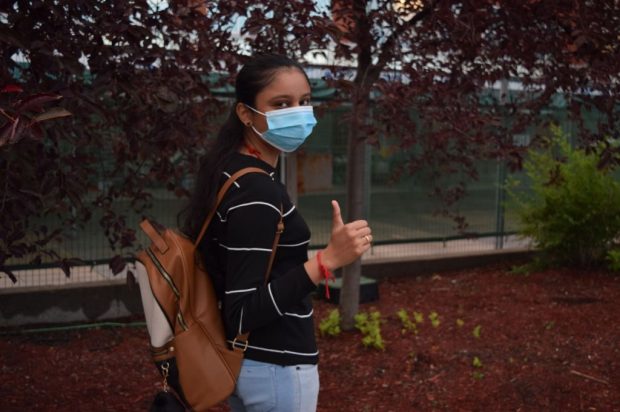The federal government launched the Canada Student Service Grant (CSSG) on June 25, providing volunteering opportunities and one-time pays between $1,000 to $5,000 for post-secondary students and recent graduates.
With fewer jobs, co-ops and internship opportunities, students are having a tough time financing themselves and are scared of the ambiguous future ahead of the pandemic. At the same time, the novel coronavirus outbreak has increased demand for helpers at not-for-profit organizations.
To benefit both charities and students, Prime Minister Justin Trudeau launched the CSSG last Thursday. International students are not eligible for the grant.
CSSG will provide student volunteers with not just experience, but a one-time payment between $1,000 and $5,000, based on the number of hours they serve.
“Canadian students are looking for ways to make a real difference in their communities,” Trudeau said. “With these new investments, we are giving them with the support and connections they need to have a positive impact during COVID-19 and gain the skills needed for future success.”
Students can use the new I Want to Help platform to find not-for-profit organizations looking for help during the pandemic. The platform enlists a variety of educational volunteering opportunities for aspiring students.
Students receiving the Canada Emergency Student Benefit (CESB) are also eligible to apply for the CSSG.
Algonquin College has always encouraged students to do their part for society and has helped them seek volunteering opportunities at college, local and community levels. These activities are recorded as Co-Curricular Record (CCR) and students are credited for their involvement in community services.
The college records an average of 2,182 student engagement work records every year.
To help Algonquin students make the most of this grant, the college has partnered with the I Want to Help platform. Based on their skills, the portal will match students with the right volunteering opportunities available in their cities and help them with the paperwork to receive the grant.
“We will be starting a campaign on our social media and volunteer program website to guide students to the I Want to Help platform,” said Martha Marr, program manager for Aspire AC and AC Hub. “The campaign, organized by the AC Hub, aims to help students understand how the grant works.”
If you’re worried about volunteering hours and credit, there’s good news for you.
“Students will get co-curricular credit for all the volunteerism they do through this program,” said Marr.
However, the newly announced CSSG is still a mystery to many students.
“I was surprised that I didn’t know about a grant for volunteering,” said Julien Tremblay, a library and information technician student at Algonquin.
“I only got to know about it while I was telling a fellow student about how I have been spending my free time,” he said.
“During the initial phase of COVID-19, I was volunteering with the City of Ottawa’s COVID-19 Human Need Task Force, but without a pay,” said Tremblay. “This is a great opportunity and I’m planning to apply for the grant soon.”
Not every student is qualified to profit from the new grant.
Gagandeep Rekhi, an active volunteering student at Algonquin won the student volunteer award for the year 2019-2020. His volunteering journey began in 2019 as a general volunteer. After the “ice-breaker” project, He took part in most of the community events and projects at Algonquin. However, Rekhi is an international student and not eligible for the grant.
“The CSSG is a great encouragement for volunteers who are risking their lives and serving communities. This will boost the morale of the volunteers for sure,” said Rekhi.
“I understand that the grant is for Canadian citizens but I would appreciate if they include international students too, under the category,” he said.
Since the health and safety of students is the priority, all volunteering projects are designed to work remotely, respecting social distancing guidelines.
“Most volunteering positions are remote, intended as backup support to front-line workers,” said Marr.

The prime minister has also announced $40 million funding to create 5,000 Mitacs internships and positions at the post-secondary level and create 10,000 job placements for Canadians aged between 15 and 30 through Canada Summer Jobs.
The government has also assured support for 20,000 placements in high demand sectors through the Student Work Placement Program.
An online COVID-19 survival toolkit consisting of techniques to be successful at learning remotely can be found on the college website.


